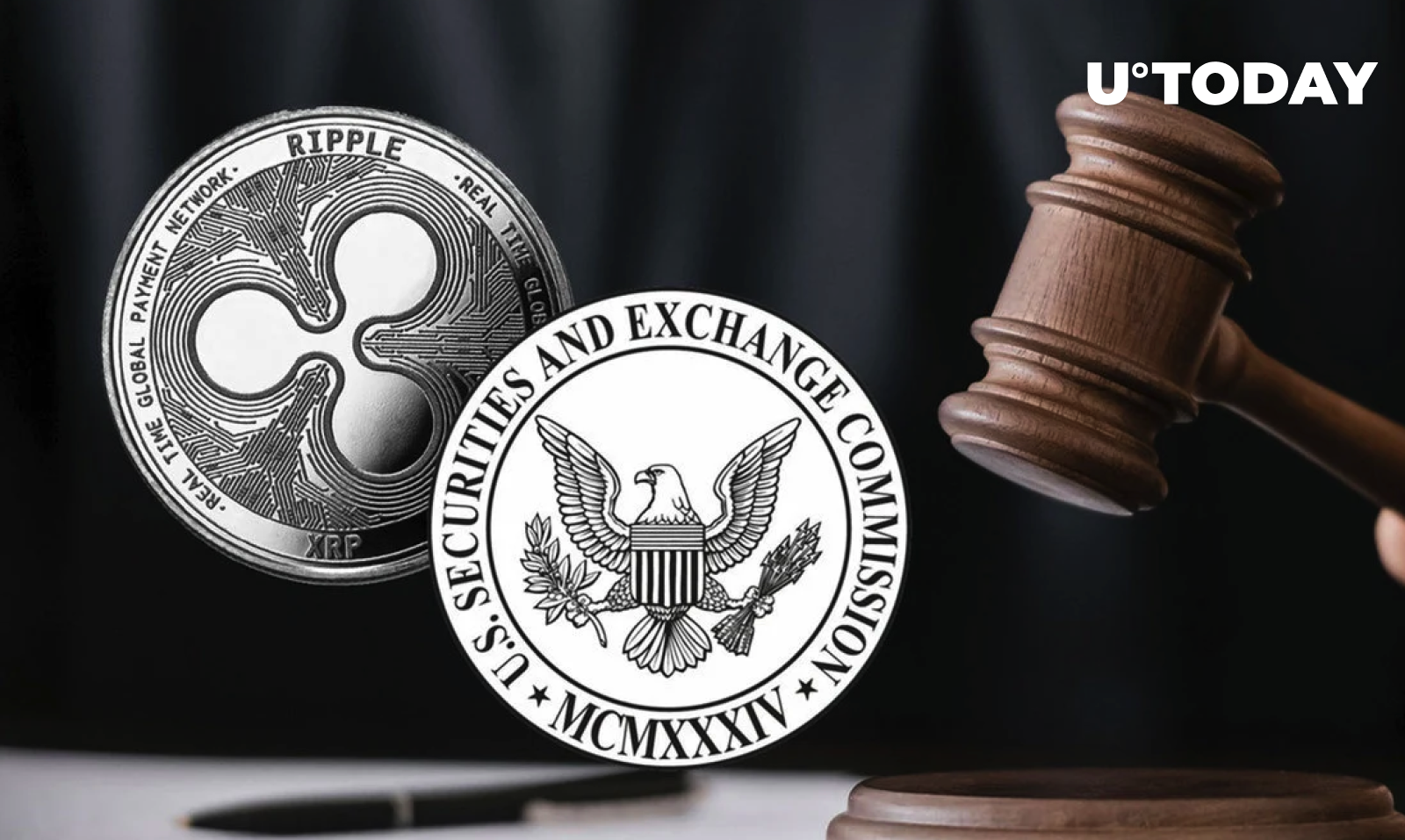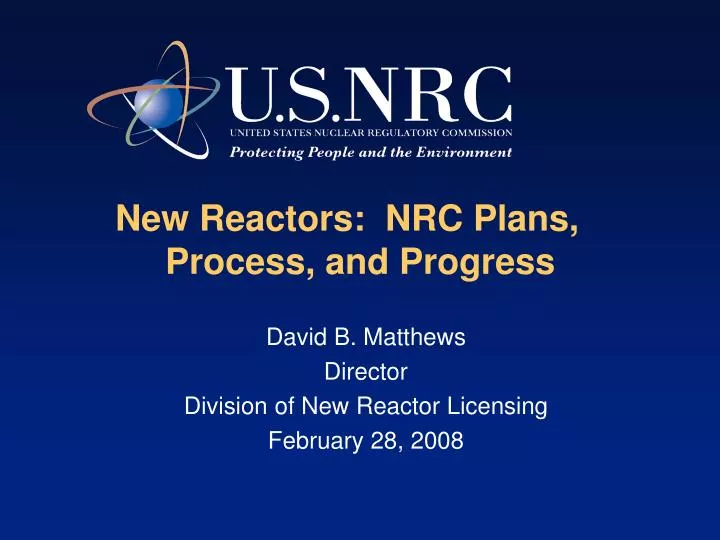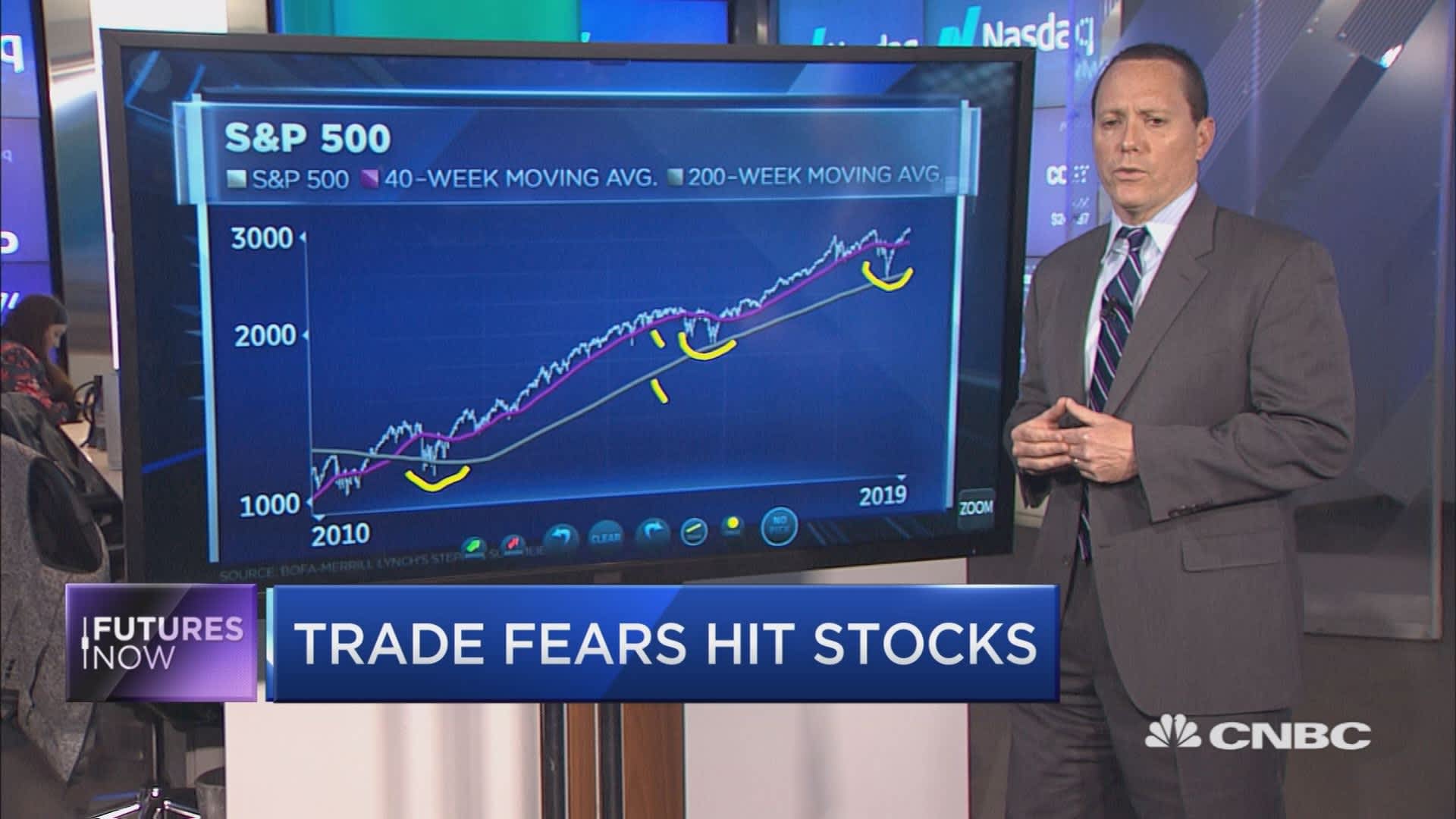The Ripple-SEC Case: Will XRP Be Deemed A Commodity?

Table of Contents
The SEC's Argument: Why XRP is a Security
The SEC's core argument rests on the application of the Howey Test, a legal framework used to determine whether an investment constitutes a security.
The Howey Test: A Security's Defining Characteristics
The Howey Test establishes four criteria for an investment contract to be classified as a security:
- Investment of Money: Investors provided funds to Ripple in exchange for XRP.
- Common Enterprise: Investors participated in a shared venture with Ripple and other XRP holders.
- Expectation of Profits: Investors anticipated profits derived from Ripple's efforts and the growth of the XRP market.
- Efforts of Others: Investors relied on Ripple's efforts to develop and promote XRP to generate profits.
The SEC argues that Ripple's sales of XRP satisfy all four elements of the Howey Test.
- Specific Examples: The SEC points to Ripple's programmatic sales of XRP, institutional sales, and other distribution methods as evidence of an investment contract. They contend these sales were unregistered securities offerings, violating federal securities laws. The SEC alleges that Ripple’s marketing materials further contributed to the perception of XRP as an investment, directly influencing the expectation of profits among purchasers.
Ripple's Sales and Distribution: A Key Contention
A central aspect of the SEC's case focuses on how Ripple distributed XRP. The SEC alleges that Ripple's various sales methods, including:
- Programmatic Sales: Automated sales of XRP through various platforms.
- Institutional Sales: Direct sales to large institutional investors.
- Other Distribution Channels: Sales through various exchanges and partnerships.
constituted an unregistered offering of securities. The SEC argues that these sales fostered a reasonable expectation of profit derived from Ripple’s efforts, thereby meeting the requirements of an investment contract under the Howey Test. They argue these sales were not conducted under the protections afforded by proper registration procedures, leading to their claim of securities law violation. This aspect of the case hinges on the nature of Ripple’s involvement in the distribution and promotion of XRP.
Ripple's Defense: Why XRP is a Commodity
Ripple counters the SEC's claims by arguing that XRP functions as a decentralized digital asset, operating outside their direct control and therefore not meeting the criteria of a security.
Decentralization and Market Functionality: A Key Argument
Ripple emphasizes XRP's decentralized nature, highlighting these points:
- Decentralized Exchanges: XRP trades on numerous independent exchanges, not controlled by Ripple.
- Peer-to-Peer Transactions: Users can send and receive XRP directly without intermediaries.
- Market-Driven Price: The price of XRP is determined by market forces of supply and demand, not by Ripple's actions.
They argue this decentralized functionality distinguishes XRP from securities, where profits largely depend on the efforts of a central entity.
Comparison to Other Cryptocurrencies: Setting a Precedent
Ripple's defense also draws comparisons between XRP and other cryptocurrencies generally accepted as commodities, such as Bitcoin and Ethereum:
- Bitcoin vs. XRP: Both Bitcoin and XRP operate on decentralized networks with similar market dynamics.
- Decentralized Finance (DeFi): The use of XRP in DeFi applications further supports the argument of its commodity-like nature.
Ripple argues that applying the "security" label to XRP while not applying it similarly to Bitcoin and Ethereum would create inconsistencies within the cryptocurrency classification system, creating unnecessary regulatory burdens and market uncertainty.
Potential Outcomes and Implications of the Case
The Ripple-SEC case holds substantial implications for the cryptocurrency market and the future of XRP itself.
Impact on the Crypto Market: Setting Regulatory Precedent
The outcome will significantly affect:
- Regulatory Uncertainty: A ruling against Ripple could increase regulatory uncertainty for other cryptocurrencies.
- Crypto Market Volatility: The decision could cause significant volatility in the cryptocurrency market.
- Future of Crypto Regulation: This case sets a precedent for future regulatory approaches to digital assets.
The Future of XRP: Scenarios and Predictions
Several outcomes are possible:
- XRP Deemed a Security: This would severely impact XRP's price and potentially restrict its use.
- XRP Deemed a Commodity: This would provide regulatory clarity and likely boost XRP's value.
- Other Regulatory Outcomes: The court may issue a ruling with nuanced interpretations of existing securities laws. This could lead to a compromise that addresses some SEC concerns without wholly classifying XRP as a security.
The XRP price prediction will largely depend on the specifics of the court’s ruling and subsequent regulatory responses. Continued analysis and monitoring of this case are crucial.
Conclusion
The Ripple-SEC case is a landmark legal battle with far-reaching consequences for the cryptocurrency industry. The court’s decision on XRP's classification as a security or a commodity will reshape the regulatory landscape and investor sentiment. This decision will have a substantial impact on investor confidence, regulatory clarity, and the future of digital asset classification. Stay updated on the Ripple-SEC case to understand how the classification of XRP—as a commodity or a security—could significantly affect your crypto investments. Understanding the nuances of the Ripple-SEC case and its potential implications for XRP and the broader crypto market is crucial for informed decision-making.

Featured Posts
-
 Planning A Reactor Power Uprate Navigating The Nrc Process
May 01, 2025
Planning A Reactor Power Uprate Navigating The Nrc Process
May 01, 2025 -
 Understanding Pasifika Sipoti April 4th In Short
May 01, 2025
Understanding Pasifika Sipoti April 4th In Short
May 01, 2025 -
 Rm 36 45 Juta Bantuan Asnaf Disalurkan Tabung Baitulmal Sarawak Sehingga Mac 2025
May 01, 2025
Rm 36 45 Juta Bantuan Asnaf Disalurkan Tabung Baitulmal Sarawak Sehingga Mac 2025
May 01, 2025 -
 Tonga Dashes Sis Olympic Hopes
May 01, 2025
Tonga Dashes Sis Olympic Hopes
May 01, 2025 -
 Nrc Vandaag Krijgt Nieuwe Presentator Bram Endedijk
May 01, 2025
Nrc Vandaag Krijgt Nieuwe Presentator Bram Endedijk
May 01, 2025
Latest Posts
-
 Stock Market Valuation Concerns Bof A Offers Investors Reassurance
May 01, 2025
Stock Market Valuation Concerns Bof A Offers Investors Reassurance
May 01, 2025 -
 Pierre Poilievres Election Loss What Went Wrong
May 01, 2025
Pierre Poilievres Election Loss What Went Wrong
May 01, 2025 -
 Black Sea Oil Spill 62 Miles Of Beaches Closed In Russia
May 01, 2025
Black Sea Oil Spill 62 Miles Of Beaches Closed In Russia
May 01, 2025 -
 Major Oil Spill Prompts Closure Of 62 Miles Of Black Sea Beaches In Russia
May 01, 2025
Major Oil Spill Prompts Closure Of 62 Miles Of Black Sea Beaches In Russia
May 01, 2025 -
 Russias Black Sea Oil Spill Leads To Widespread Beach Closures
May 01, 2025
Russias Black Sea Oil Spill Leads To Widespread Beach Closures
May 01, 2025
